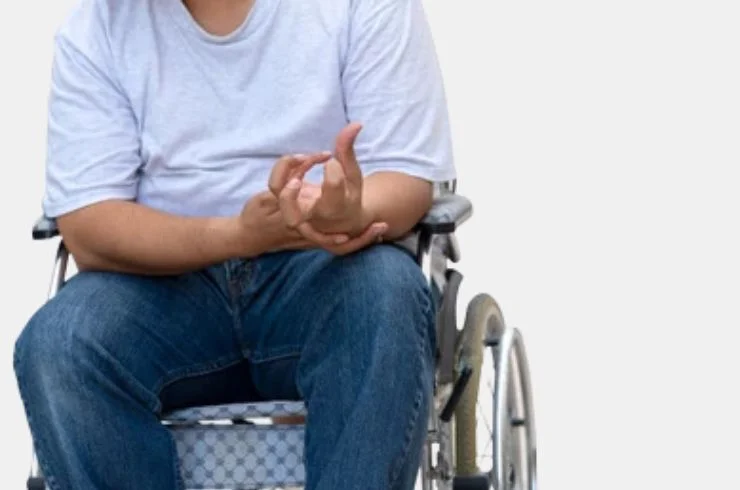Paralysis
- Home
- Treatments
- Paralysis

What is Paralysis?
Paralysis is the loss of muscle function in one or more parts of the body. It occurs when there is damage to the nervous system, particularly the spinal cord or brain, that disrupts the communication between the brain and muscles. Paralysis can affect any part of the body and can be partial or complete, depending on the severity of the nerve damage.
What Causes Paralysis?
Paralysis can result from various conditions, including:
- Stroke: When blood flow to the brain is interrupted, it can cause nerve damage leading to paralysis.
- Spinal Cord Injury: Trauma or injury to the spinal cord can block signals from the brain, resulting in paralysis below the injury site.
- Multiple Sclerosis: A chronic autoimmune disease that damages the protective covering of nerves, leading to loss of motor function.
- Cerebral Palsy: A group of neurological disorders that affect movement and coordination, often resulting in paralysis in some areas of the body.
- Infections: Conditions like polio or Guillain-Barré syndrome can lead to paralysis by attacking the nervous system.
- Neurological Disorders: Conditions such as Parkinson’s disease or amyotrophic lateral sclerosis (ALS) can progressively lead to paralysis.
Symptoms of Paralysis
Symptoms of paralysis can vary depending on the type and extent of nerve damage. Common signs include:
- Loss of muscle function or control in certain body parts.
- Numbness or tingling in the affected area.
- Difficulty moving limbs or controlling facial muscles.
- Muscle weakness or atrophy in the affected muscles.
- Difficulty breathing or swallowing, if the respiratory muscles are affected.
How We Treat Paralysis at Dr. Jyotsna’s Physiotherapy Clinic
At Dr. Jyotsna’s Physiotherapy Clinic, we specialize in helping individuals with paralysis regain mobility and independence through a variety of therapeutic techniques. Our goal is to improve muscle function, reduce spasticity, and enhance quality of life. Our treatments include:
- Neuromuscular Re-education: Targeted exercises designed to re-establish nerve-muscle communication and improve movement.
- Strengthening Exercises: Gradual strengthening of weak muscles to prevent atrophy and improve overall function.
- Manual Therapy: Techniques such as stretching and mobilization to increase flexibility and reduce stiffness.
- Electrical Stimulation Therapy: The use of electrical currents to stimulate muscles and nerves, improving strength and muscle tone.
- Functional Training: Re-learning everyday tasks and improving posture and balance to maximize independence.
- Assistive Devices: Guidance on the use of braces, walkers, or wheelchairs to improve mobility and daily functioning.
Begin Your Journey to Recovery
While paralysis can be a challenging condition, with the right care, recovery, and rehabilitation, many individuals experience significant improvements in their physical abilities. At Dr. Jyotsna’s Physiotherapy Clinic, we are dedicated to providing personalized treatment plans to help you regain strength, mobility, and independence. Our expert team will support you every step of the way on your road to recovery. Visit us today to start your journey towards a better, more active life!
